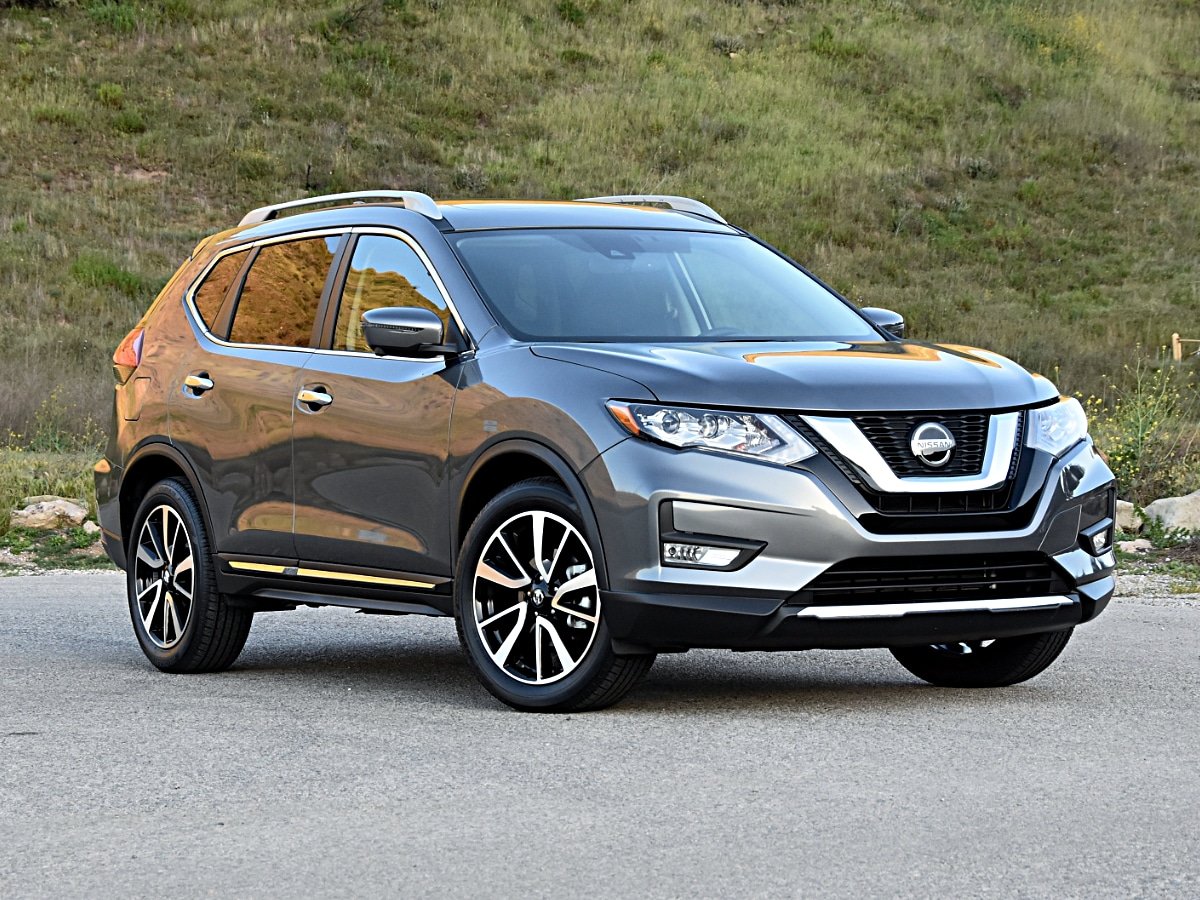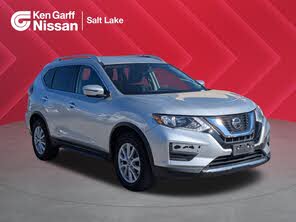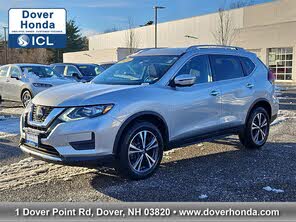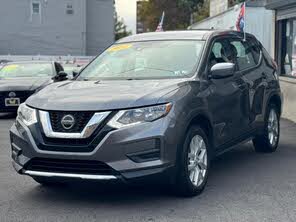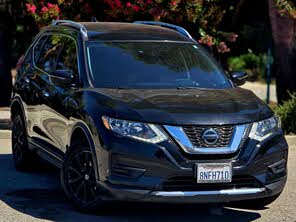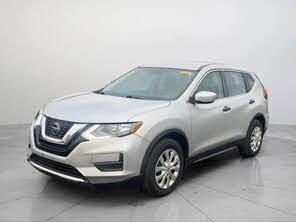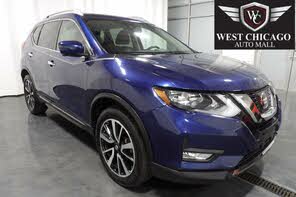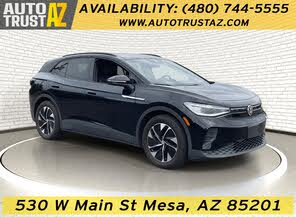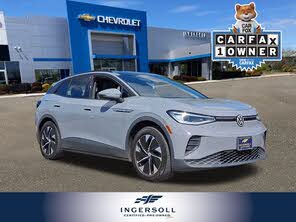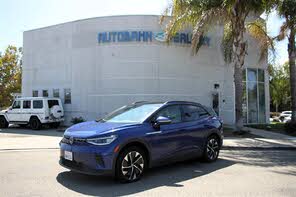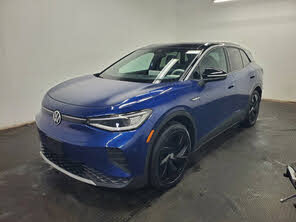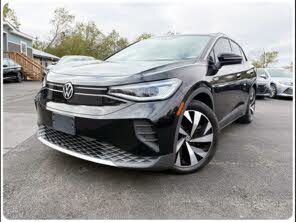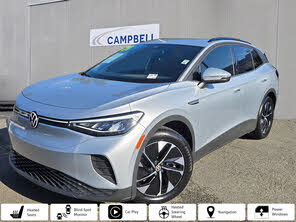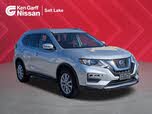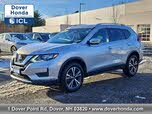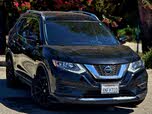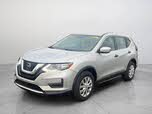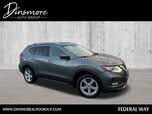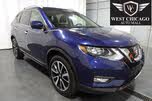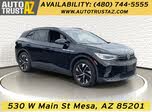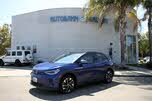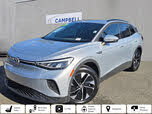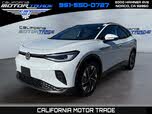2020 Nissan Rogue vs 2021 Volkswagen ID.4
Overview | |
MSRP$25,490 | MSRP$39,995 |
Listings1166 | Listings396 |
Ratings & Reviews | |
User Reviews | User Reviews |
Expert reviews6.0 out of 10 | Expert reviews7.3 out of 10 |
Pros
Cons
| Pros
Cons
|
2020 Nissan Rogue Reviews SummaryNissan hasn’t redesigned the Rogue since 2014, but an all-new version of this SUV is coming for the 2021 model year. In the meantime, dealers will be eager to sell remaining stocks of the outgoing 2020 Nissan Rogue, and the deals on these new cars ought to be mighty juicy. Should you bite? Should you wait? Or should you shop for something else? The answers to these questions depend on who you are and what you value in a compact crossover SUV. | |
2021 Volkswagen ID.4 Reviews SummaryThe “Dieselgate” emissions scandal forced Volkswagen to double down on electric cars, and now we’re finally seeing the first result of that: the 2021 Volkswagen ID.4 electric crossover. VW has made an electric car before, but its last attempt, the e-Golf, was built to satisfy emissions standards, not rack up sales. It was barely advertised, and it was sold only in certain states. That’s not the case with the ID.4, which will be available nationwide and will even be built in Tennessee starting in 2022. Volkswagen views the ID.4 as a rival not to other EVs, but to mainstream gasoline vehicles like the Honda CR-V and Toyota RAV4. Being late to the party means there are already several other EVs trying to coax new-car buyers away from internal combustion, however. If you want a reasonably-priced EV, the Nissan Leaf, Hyundai Kona Electric, and Kia Niro EV already exist, and General Motors just announced the 2022 Chevrolet Bolt EUV—a new variant of the Chevy Bolt EV with a crossover body style similar to the Volkswagen. We tested an ID.4 1st Edition, which commemorates the car’s launch, and an ID.4 PRO S with all-wheel drive (AWD). The 1st Edition is a limited-edition model that has already sold out, but it’s mechanically identical to the ID.4 Pro S AWD, albeit with power sent only to the rear wheels. | |
No video found | |
Popular Features & Specs | |
Engine2.5L 170 hp I4 | Engine201 hp Electric |
Drive TrainFWD | Drive TrainRWD |
Seating Capacity5 | Seating Capacity5 |
Horsepower170 hp @ 6000 rpm | Horsepower |
EV Battery Capacity | EV Battery Capacity82 kWh |
MPG City26 | MPG City104 |
MPG Highway33 | MPG Highway89 |
Battery Charge Time (240V) | Battery Charge Time (240V)8 hours |
Engine | |
Engine Name2.5L 170 hp I4 | Engine Name201 hp Electric |
Torque175 lb-ft @ 4400 rpm | Torque |
Horsepower170 hp @ 6000 rpm | Horsepower |
Battery Charge Time (240V) | Battery Charge Time (240V)8 hours |
DrivetrainFWD | DrivetrainRWD |
Fuel Economy | |
EV Battery Capacity | EV Battery Capacity82 kWh |
MPG City26 | MPG City104 |
MPG Highway33 | MPG Highway89 |
Interior | |
Seating Capacity5 | Seating Capacity5 |
Safety | |
Front Crash Overall4 | Front Crash Overall5 |
Side Crash Overall5 | Side Crash Overall5 |
Dimensions & Capacity | |
Cargo Space39.3 cu ft | Cargo Space30.3 cu ft |
Curb Weight3463 lbs | Curb Weight4517 lbs |
Height66.3 in | Height64.4 in |
Length184.5 in | Length180.5 in |
Width72.4 in | Width72.9 in |
Wheelbase106.5 in | Wheelbase108.9 in |
Maximum Payload1127 lbs | Maximum Payload1347 lbs |
Number of doors4 | Number of doors4 |
Overview | ||
MSRP | $25,490 | $39,995 |
Listings | ||
Ratings & Reviews | ||
User reviews | ||
Expert reviews | 6.0 out of 10Read full review | 7.3 out of 10Read full review |
Pros & cons | Pros
Cons
| Pros
Cons
|
Summary | Nissan hasn’t redesigned the Rogue since 2014, but an all-new version of this SUV is coming for the 2021 model year. In the meantime, dealers will be eager to sell remaining stocks of the outgoing 2020 Nissan Rogue, and the deals on these new cars ought to be mighty juicy. Should you bite? Should you wait? Or should you shop for something else? The answers to these questions depend on who you are and what you value in a compact crossover SUV. | The “Dieselgate” emissions scandal forced Volkswagen to double down on electric cars, and now we’re finally seeing the first result of that: the 2021 Volkswagen ID.4 electric crossover. VW has made an electric car before, but its last attempt, the e-Golf, was built to satisfy emissions standards, not rack up sales. It was barely advertised, and it was sold only in certain states. That’s not the case with the ID.4, which will be available nationwide and will even be built in Tennessee starting in 2022. Volkswagen views the ID.4 as a rival not to other EVs, but to mainstream gasoline vehicles like the Honda CR-V and Toyota RAV4. Being late to the party means there are already several other EVs trying to coax new-car buyers away from internal combustion, however. If you want a reasonably-priced EV, the Nissan Leaf, Hyundai Kona Electric, and Kia Niro EV already exist, and General Motors just announced the 2022 Chevrolet Bolt EUV—a new variant of the Chevy Bolt EV with a crossover body style similar to the Volkswagen. We tested an ID.4 1st Edition, which commemorates the car’s launch, and an ID.4 PRO S with all-wheel drive (AWD). The 1st Edition is a limited-edition model that has already sold out, but it’s mechanically identical to the ID.4 Pro S AWD, albeit with power sent only to the rear wheels. |
Video | No video found | |
Popular Features & Specs | ||
Engine | 2.5L 170 hp I4 | 201 hp Electric |
Drive Train | FWD | RWD |
Seating Capacity | 5 | 5 |
Horsepower | 170 hp @ 6000 rpm | |
EV Battery Capacity | 82 kWh | |
MPG City | 26 | 104 |
MPG Highway | 33 | 89 |
Battery Charge Time (240V) | 8 hours | |
Engine | ||
Engine Name | 2.5L 170 hp I4 | 201 hp Electric |
Torque | 175 lb-ft @ 4400 rpm | |
Horsepower | 170 hp @ 6000 rpm | |
Battery Charge Time (240V) | 8 hours | |
Drivetrain | FWD | RWD |
Fuel Economy | ||
EV Battery Capacity | 82 kWh | |
MPG City | 26 | 104 |
MPG Highway | 33 | 89 |
Interior | ||
Seating Capacity | 5 | 5 |
Safety | ||
Front Crash Overall | 4 | 5 |
Side Crash Overall | 5 | 5 |
Dimensions & Capacity | ||
Cargo Space | 39.3 cu ft | 30.3 cu ft |
Curb Weight | 3463 lbs | 4517 lbs |
Height | 66.3 in | 64.4 in |
Length | 184.5 in | 180.5 in |
Width | 72.4 in | 72.9 in |
Wheelbase | 106.5 in | 108.9 in |
Maximum Payload | 1127 lbs | 1347 lbs |
Number of doors | 4 | 4 |
The 2020 Nissan Rogue, available in S, SV, and SL trim levels, featured a single engine and transmission combination with a choice between front-wheel drive (FWD) and all-wheel drive (AWD). Our test car for this review came with the SL trim, front-drive, SL Premium Package, carpeted floor and cargo mats, and a first-aid kit, and had a window-sticker price of $34,870, including a $1,095 destination charge.
Visually, the Rogue, despite its age, remained attractive. The V-Motion grille design was bold and perhaps a bit overdone, and the fender swells slightly exaggerated, but the Rogue SL’s 19-inch aluminum wheels added a touch of allure. However, upon entering the cabin, the vehicle’s age became evident. The waterfall control panel down the center of the dashboard and the older styling themes contrasted with the contemporary horizontal and angular motifs increasingly favored by designers. The plastic surfaces didn’t impress either.
However, the Rogue SL’s interior had a redeeming feature: the padded sides of the center console where drivers' legs might rest, showcasing thoughtful design.
On the other hand, the 2021 Volkswagen ID.4 was designed from the ground up as an electric vehicle (EV), boasting a distinctive look to highlight its electric nature. It avoided the fake ruggedness of gasoline Volkswagen Tiguan and Atlas crossovers, opting for a streamlined profile and wheels pushed out to the corners. The ID.4 was one in a series of EVs based on VW’s MEB platform and closely followed the European-market ID.3 hatchback.
The ID.4’s departure from conventional SUV styling was significant. Despite its slightly taller ride height and plastic body cladding, it closely resembled the ID.3 hatchback. This visual approach was in line with many other EV crossovers, such as the Chevy Bolt EUV, Hyundai Kona Electric, and Kia Niro EV, which didn’t strongly exhibit truck-like styling. The interior blended Volkswagen’s minimalism with a modern smartphone aesthetic, featuring piano black and matte plastic surfaces. Standard features included a leather-wrapped steering wheel and cloth seats on the base Pro model, while leatherette upholstery was present in Pro S and 1St Edition models.











Nissan equipped the 2020 Rogue with a single engine—a 170-horsepower 2.5-liter four-cylinder paired with a continuously variable automatic transmission (CVT). This setup, in a vehicle weighing up to 3,671 pounds, was merely adequate. The CVT managed to make the most of the power but resulted in a response of noise rather than action when acceleration was demanded, such as merging onto a freeway or climbing a mountain grade. Despite Nissan’s EPA estimates of 29 mpg combined for FWD versions, real-world testing only yielded 24.9 mpg, highlighting the inefficiency of the powertrain.
The Rogue’s attempt to refine ride and handling through technologies like Intelligent Trace Control and Active Ride Control (brake-induced) provided some improvement. However, the heavy electrically assisted steering, unsatisfactory suspension isolation, and the CVT’s drone detracted from the driving experience, making the Rogue more endured than enjoyed.
Conversely, the 2021 Volkswagen ID.4 launched with a single rear-mounted electric motor producing 201 horsepower and 229 pound-feet of torque, powered by an 82-kilowatt-hour battery pack. It was notable for being the first rear-wheel-drive (RWD) Volkswagen passenger car sold in the U.S. since the Beetle. The balance provided by RWD, combined with the electric motor’s instantaneous torque, resulted in a fun experience when accelerating from stoplights. Later in 2021, an all-wheel-drive (AWD) version emerged, with added power from a second motor driving the front wheels, totaling 295 horsepower and 339 pound-feet of torque.
Despite these figures, the ID.4 was tuned more for comfort than sportiness. It exhibited body roll in corners but provided a smooth ride over pavement imperfections. While regen braking was present, the ID.4 predominantly relied on friction brakes, likening its driving experience to gasoline cars, a decision VW made to ease the transition for drivers new to EVs.
In terms of interior space, the 2020 Nissan Rogue posed some challenges for taller drivers. The seats, though featuring Nissan’s Zero Gravity cushion designs and Quick Comfort heating, offered limited adjustment options, impacting driver comfort. Backseat passengers, however, benefited from high seat cushions, excellent thigh support, a proper backrest angle, and a great view enhanced by the panoramic sunroof. Rear air conditioning vents and USB ports added to passenger comfort.
Cargo-wise, the Rogue excelled with 39 cubic feet of space behind the back seat, significantly more than competitors like the Mazda CX-5. Additional underfloor storage compartments and the standard Divide-n-Hide cargo management system further enhanced its practicality.
In contrast, the 2021 Volkswagen ID.4, though not offering as much rear headroom and legroom as gasoline competitors like the Honda CR-V and Toyota RAV4, did provide more front headroom. The ID.4’s cargo capacity was 30.3 cubic feet with the rear seats up and 64.2 cubic feet with them folded. While not featuring a “frunk,” Volkswagen prioritized cabin space, making the interior feel spacious from the driver’s seat. However, thick rear pillars and a small back window compromised rearward visibility.
Instead of a conventional shift lever, the ID.4 employed a twist-grip gear selector on the dashboard, theoretically freeing up space but resulting in a narrow center console with limited larger item storage. Heated front seats and a steering wheel addressed cabin heat challenges in colder climates, but the driver’s seat lacked thigh support, impacting long-term comfort.
The 2020 Nissan Rogue’s infotainment system included basic connectivity features like Bluetooth, Apple CarPlay, Android Auto, and hands-free text messaging. Depending on the trim level, additional features such as SiriusXM satellite radio, navigation, a Bose premium sound system, and various NissanConnect Services were available. These services included Amazon Alexa, Google Assistant, remote access functions, and safety communication features with trial periods ranging from six months to three years. Despite the sophisticated offerings, the system’s user interface, with a 7-inch touchscreen, was dated and marred by slow response times and subpar voice recognition.
Conversely, the 2021 Volkswagen ID.4 introduced a more modern setup with a 10-inch touchscreen (with a 12-inch optional), wireless Apple CarPlay and Android Auto, a 5.3-inch digital instrument cluster, and haptic touchpads replacing traditional switchgear. The novelty of the touchpads, without tactile feedback, made their use challenging while driving. However, Volkswagen’s natural-language voice-control system, activated by “Hello ID,” allowed for intuitive adjustments of temperature and radio stations. The ID.Light, a light strip offering additional feedback, was another noteworthy but non-essential feature. Yet, the placement of the main touchscreen and the choice of smartphone-like icons or a split-screen setup were practical and user-friendly.
The 2020 Nissan Rogue gathered several advanced driver-assistance systems under the Safety Shield 360 umbrella, including forward-collision warning, automatic emergency braking, blind-spot monitoring, rear cross-traffic alert, lane departure warning, and automatic high-beam headlights. Additional features like Rear Door Alert and Tire Fill Alert added convenience. Optional systems included a surround-view camera and ProPilot Assist, which offered adaptive cruise control with lane-centering capability, though it felt dated compared to newer systems. The Rogue’s safety ratings were less impressive, with a 4-star overall rating from the NHTSA and a lack of a Top Safety Pick designation from the IIHS, primarily due to issues with frontal-impact protection.
In contrast, the 2021 Volkswagen ID.4 excelled in safety, earning the IIHS Top Safety Pick+ designation and a five-star rating from the NHTSA for the RWD model. Standard safety features included forward-collision warning, automatic emergency braking, blind-spot monitoring, lane-keep assist, park distance control, automatic high beams, and adaptive cruise control. New to the 2021 lineup were Travel Assist, offering automated lane centering with adaptive cruise control, and Emergency Assist, designed to bring the car to a stop if the driver was incapacitated. These systems performed well, showing notable improvement over their gasoline counterparts and enhancing the overall safety profile of the ID.4.
CarGurus highlights

According to CarGurus experts, the overall rating for the 2020 Nissan Rogue is 6 out of 10, while the 2021 Volkswagen ID.4 scores 7.3 out of 10. Based on these ratings, the Volkswagen ID.4 is the superior choice, offering a more modern and tech-savvy driving experience along with higher safety ratings and a more comfortable ride. Therefore, consumers who prioritize these attributes in their vehicle purchase should favor the 2021 Volkswagen ID.4.
Choose the 2020 Nissan Rogue if:
- You value a spacious cargo area with innovative storage solutions.
- Rear passenger comfort and excellent outward visibility are critical.
- You prefer a well-rounded suite of advanced driver-assistance systems.
Choose the 2021 Volkswagen ID.4 if:
- You are drawn to a modern, tech-forward interior with substantial infotainment options.
- Excellent safety ratings and advanced driver-assistance features are paramount.
- You seek an EV with a comfortable ride and user-friendly driving experience transitions.
CarGurus highlights

According to CarGurus experts, the overall rating for the 2020 Nissan Rogue is 6 out of 10, while the 2021 Volkswagen ID.4 scores 7.3 out of 10. Based on these ratings, the Volkswagen ID.4 is the superior choice, offering a more modern and tech-savvy driving experience along with higher safety ratings and a more comfortable ride. Therefore, consumers who prioritize these attributes in their vehicle purchase should favor the 2021 Volkswagen ID.4.
Choose the 2020 Nissan Rogue if:
Shop Now- You value a spacious cargo area with innovative storage solutions.
- Rear passenger comfort and excellent outward visibility are critical.
- You prefer a well-rounded suite of advanced driver-assistance systems.
Choose the 2021 Volkswagen ID.4 if:
Shop Now- You are drawn to a modern, tech-forward interior with substantial infotainment options.
- Excellent safety ratings and advanced driver-assistance features are paramount.
- You seek an EV with a comfortable ride and user-friendly driving experience transitions.

By: CarGurus + AI
At CarGurus, our team of experienced automotive writers remain at the heart of our content operation, conducting hands-on car tests and writing insightful guides that are backed by years of industry experience. To complement this, we are harnessing AI to make our content offering more diverse and more helpful to shoppers than ever. To achieve this, our AI systems are based exclusively on CarGurus content, ratings and data, so that what we produce is both unique to CarGurus, and uniquely helpful to car shoppers.
